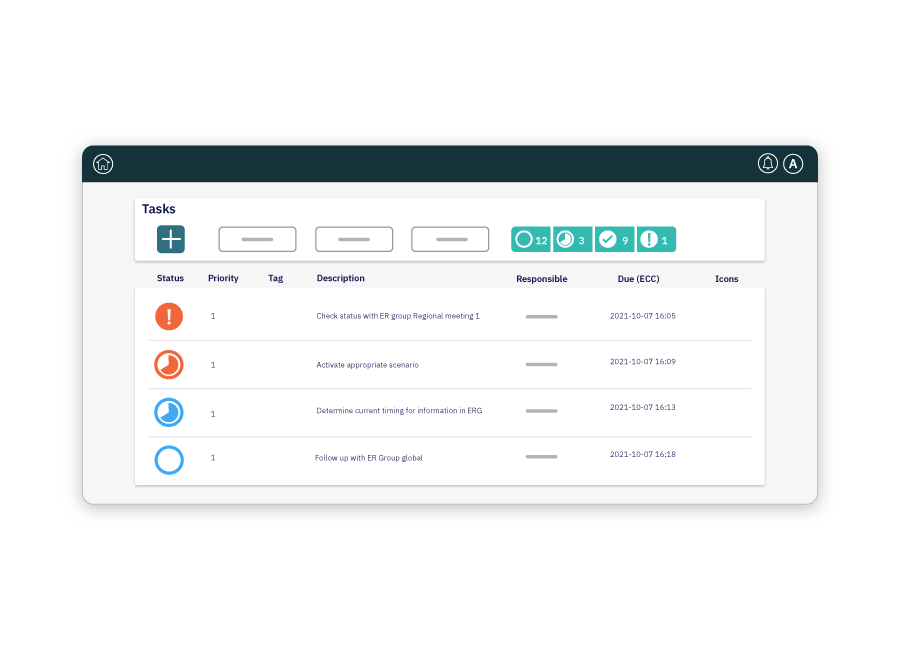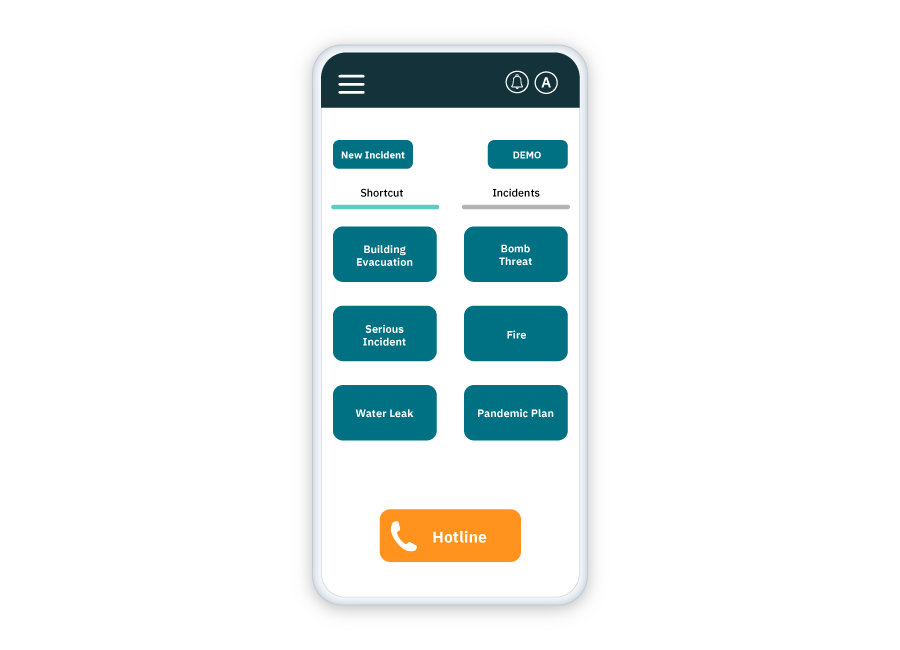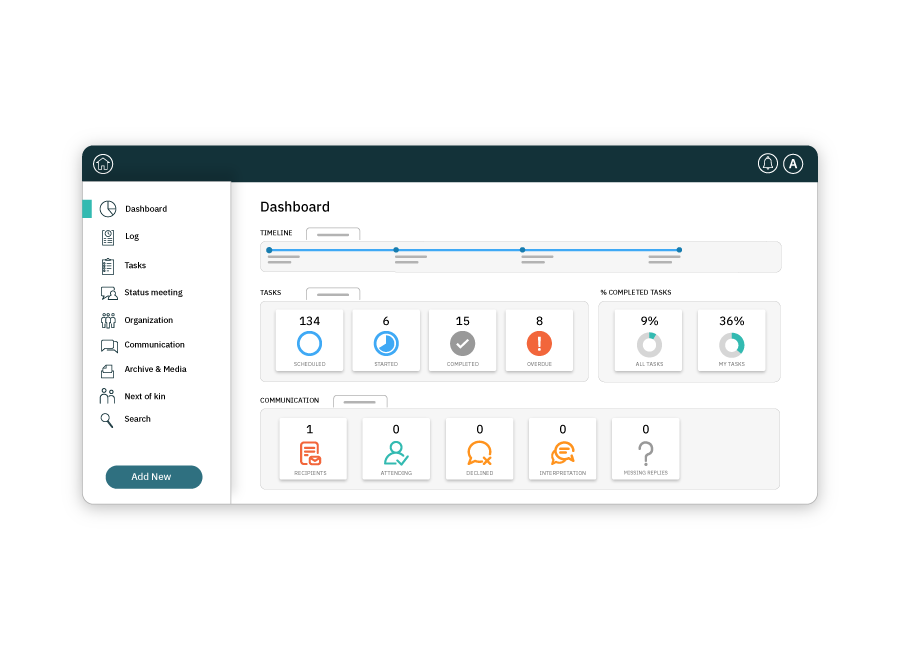Crisis Management Software
EcoOnline's Crisis Management Software makes it easier for your business to safeguard lives, safety, important assets and the environment in the event of an incident.
.png?width=900&height=651&name=Crisis%20Manager%20ENG%20-%20Header%20(FINAL).png)
Be prepared for any event
with digital crisis management
EcoOnline Crisis Management is a modern and user-friendly crisis management platform
suitable for all kinds of businesses and industries.
Our Crisis Management Software package makes your crisis and emergency response plans easily accessible to the employees who need them. Ensure a quick return to normalized business operation after any incident and re-establish compliance.
The software documents all drills and events, optimizes alarm chains and
ensures effective communication every step of the way.
Overview, insight and management – all in one system. Supports collaboration between functions and levels.
Share information and
create a shared situational
awareness of the management process;
past, present and future.
Register relatives and victims. Communicate and send up-to-date information to everyone concerned.
Get access to updated contact lists, necessary resources, and templates for easier management and overview.

Provide Business Continuity
- Manage critical situations with predefined scenarios and associated tasks in an easy-to-use /user-friendly solution.
- Evacuation plans, floor plans or instructions are easily accessible on any device.

Immediate Mobilization
- Mobilize industrial protection and inform the management team immediately. Keep everyone continuously updated via status meetings and conference calls.
- Alert and coordinate your crisis emergency team, customize scenarios and tasks according to the particular incident.

Improved Resilience
- A smart and reliable crisis management system that improves your businesses ability to handles any event.
- Predefined checklists and message groups ensure consistency and help you save time when the incident occurs.

“With the EcoOnline Crisis Management System, we save time by reaching everyone affected by simultaneous voice messages, emails, push notifications and text messages. We can also confirm in real time who has read the message. This allows us to concentrate on quickly getting the situation under control.”
Jens Eystein, Safety & Crisis Manager at Atlantic Airways, Atlantic Airways




Core Industries
Learn how companies of all sizes and segments use the EcoOnline Crisis Management solution to improve their preparedness and manage incidents.
EcoOnline helps airlines, airports and ground-handling with the diversity in managing events and crises. From the design and maintenance of the contingency plan to operational efficiency and coordination of an incident.

Securing environment and material values, contingency plans and incident handling for industrial safety and managers in manufacturing and production.

Secure environmental and material values, digitize your contingency plans and handle incidents as a manager in the energy production industry.

Numerous logistics organizations have faced disruptive events having a negative impact to their reputation within the industry. They can adopt new ways to mitigate potential problems and subsequent losses. Use EcoOnline Crisis Managment to mobilize, organize, and coordinate during a crisis situation.

Manage any crisis or emergency easily and efficiently
Contact our team today to discuss digitizing your crisis management processes.
Book a Demo
Hannah Daly
Account Manager, EcoOnline
Frequently asked questions
What is a crisis management plan?
The purpose of a crisis management plan is to limit the consequences of an undesirable incident.
A crisis management plan is a simple and clear description of the actions that need to be taken in various crisis situations.
Preparing a crisis management plan puts your business in the best possible position to handle an undesirable event/incident, accident or cyberattack. Actions should be taken for every identified event.
What should a crisis management plan contain?
A crisis management plan should be easily accessible and easy to understand. It should outline its purpose and scope. The principles and concepts should be defined, and there should be a list of the members of the crisis team, including roles and responsibilities.
A good crisis management plan defines how the crisis team is to be convened, and contains clearly defined alarm and contact/mobilization lists.
A good crisis management plan should be designed so that the business can handle all situations based on this overall crisis management plan, in addition to scenario-specific checklists for different incidents.
The crisis management plan should also contain instructions for following up with employees and any relatives during and after an undesirable event/incident. Good internal and external communication are key factors for successful crisis management, so include instructions for crisis communication and the name of the person responsible.
How often should you practice and test a company’s emergency preparedness?
The number of drills that a company is obliged to conduct will depend on statutory requirements.
Practice and train as often as possible – short training sessions are preferable to large-scale exercises. In any event, all companies should hold at least one drill a year, during which they practice the basics, such as notification, convening and holding the first meeting.